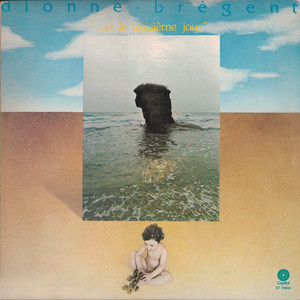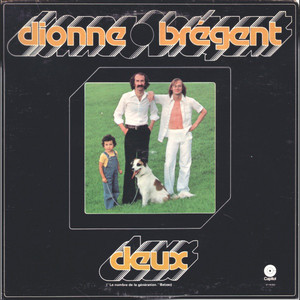Dionne - Brégent
Websites:
http://www.progarchives.com/artist.asp?id=2725
Origin:
Québec
Biography:
Brégent - Bio
Brothers Michel-Georges (keyboards) and Jacque Brégent (vocals) started their own rock group with two saxes, where they illustrated musically the texts of XXth century French-speaking poets (like Baudelaire, Verlaine and Villon) but also some of the more revered "Chansonniers" Léveillé and Leclerc and semi-anarchist Léo Ferré. Jacques sang those texts with great liberty of adaptation, being very dynamic ranging from whispering to yelling with a great voice. Their sonic illustrations were fairly dramatic, jazzy, gothic, sometimes fraying into free-jazz improvs, unique, inventive (at the time, but still sounds quite uncommon today) and dare I say it: progressive. They released their first album in 72 called enigmatically Poussières Des Regrets (dust of regrets) where Ferré's Dieu Est Nègre (god is nigger) is the centrepiece is at times stupendous. The whole album is filled with impressive compositions that sounded quite innovative for the times.
The group kept on for a while, until the mid 70's when Michel Georges teamed up with then-relatively unknown Vincent Dionne (a brilliant percussionist at ease in all sorts of music) and founded the superb DIONNE-BREGENT duo, first sounding like TANGERINE DREAM meeting NEU! and then with their second like Mike Oldfield.
It is only after this collaboration ended that the brother reunited the group in 79 (although there were no saxes this time, but with Vincent Dionne on percussions) to record their second Pour Partir Ailleurs (for going elsewhere) which repeated the formula of their first album, this time making emphasis on Leclerc (who had become Quebec's soul and an icon only rivalled by the older Gilles Vignault), even if the album is rockier, but stays very progressive with dark and haunting atmospheric moments and elsewhere pointing to avant-prog. This second album got a recent reissue with ProgQuebec, as probably will their first one soon. Michel Georges went on to compose electro-acoustic modern classical music for much of the 80's before sadly leaving us in 93.
Dionne - Brégent - Bio
Quebec duo of artistes that are unfortunately forgotten on the international progressive music scene. If both were never the groundbreaking artistes like Eno or Bruford were, both Vincent Dionne (a percussionist) and Michel-Georges Brégent (a keyboardist verse in synthesiser music) joined forces after a personal solo careers for a couple albums and actually if not broke ground, their music consolidated the broken grounds, giving an all-too-forgotten credibility to the genre, a mix of Krautrock and Electronic prog. Just two albums, but these vinyl slice are among the best one can find in their kind/genre. This duo is simply on the level of Ralf and Florian (Kraftwerk) and the trio of Edgar, Chris and Peter (TD at its best) and sometimes surpasses them. Their first album (75) is divided into a schizophrenic concept and is simply astoundingly unknown, but in its genre is simply much more than awesome, simply mandatory listening. Their second album is definitely a more immediate record with most of the tracks being voluntarily shallower (such as later Kraftwerk) and with intent, but is certainly completely different than the usual Quebec "prog" album.
Although MG Brégent sadly died in 93, Vincent Dionne has been trying to release their collaboration since then. And some 13 years later, his efforts are fully rewarded, as the two albums are now re-issued on XXI-21 but helped out by ProgQuebec.
Vincent Dionne - Bio
In contrast with Brégent's career, Vincent Dionne had remained relatively obscure a musician until the foundation of their brilliant DIONNE-BREGENT duo, but once they called it a day, they stayed a bit in touch with Dionne appearing on Brégent's 79 album. Dionne will then return to his modern classical music, sometimes recording avant-garde collaborations, until the late 80's when he will meet OREGON's Paul McCandless and release an ethnic fusion album Destinations (88) that forayed into new age music. His next album, Parade, was released in 91 and while being fairly similar in musical realm, it is a much less synthesized album. Recently, a compilation of those two albums was released through the XXI-21 label (which had reissued the brilliant DIONNE-BREGENT anthology) and it is the only album still obtainable right now.


